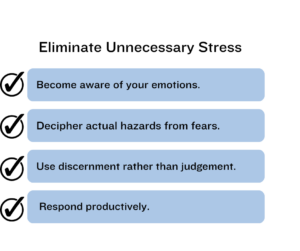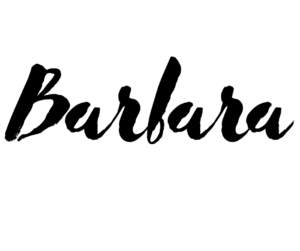Years ago I met with all my clients in person. I lived on the road driving from business to business for meetings with clients and their staff. I was strategic in planning for unexpected delays, like traffic jams or days when my children refused to get ready for school on time. Even with the best planning however, here were plenty of days I found myself stressed in the car worrying about being late.
Until one day I simply got tired of feeling stressed. I decided to make a new rule for myself. I would not worry until I was actually late. This was big. You see, I realized that the number of days I worried far outweighed the number of times I showed up late. In fact, lateness wasn’t even a problem. So, with my new rule, if I had a 9:00 AM appointment, I would not allow myself to worry at any moment before 9:00 AM, even if it was obvious beforehand that I would be late. I could plan for that possibility, and consider the best course of action for dealing with it, but that’s all. The stoic philosopher, Seneca said it best. “He who suffers before it is necessary, suffers more than is necessary.”
We do that a lot don’t we?! We worry about things that haven’t even happened yet. How much time and energy have you spent worrying about things that either never happened or, in retrospect, didn’t really matter? Statistically, 85% of what we worry about never even happens. And the research indicates that the other 15% that does occur, we handle a lot better than we anticipated. Yet many of us are stuck in the worry cycle, sometimes without even realizing it.
So how do we reduce this stress? The first place to start is by becoming more aware of your emotions. When you feel discomfort or tension, try to decipher whether you are reacting to a problem that has already occurred or are anticipating one. Be mindful. Our brains are designed to look for danger, and when in doubt, to assume the worst. It clouds our perceptions and plays on our fears. So it’s easy to judge everyday challenges as true hazards. Challenge yourself to discern rather than judge. Judging creates adverse emotions, zaps us of vital energy, and actually reduces our ability to make the best decisions. It negatively effects how we show up, and others feel that energy. On the other hand, discerning helps us to objectively see only the facts. Discernment lights up the brain’s learning centers so we can plan more effectively. It promotes clarity so we may respond rather than react, a much more productive approach to life’s challenges.

It’s simply about being present and mindful. Make mindfulness a daily practice and stress reduction is easier………….even if you show up late.


